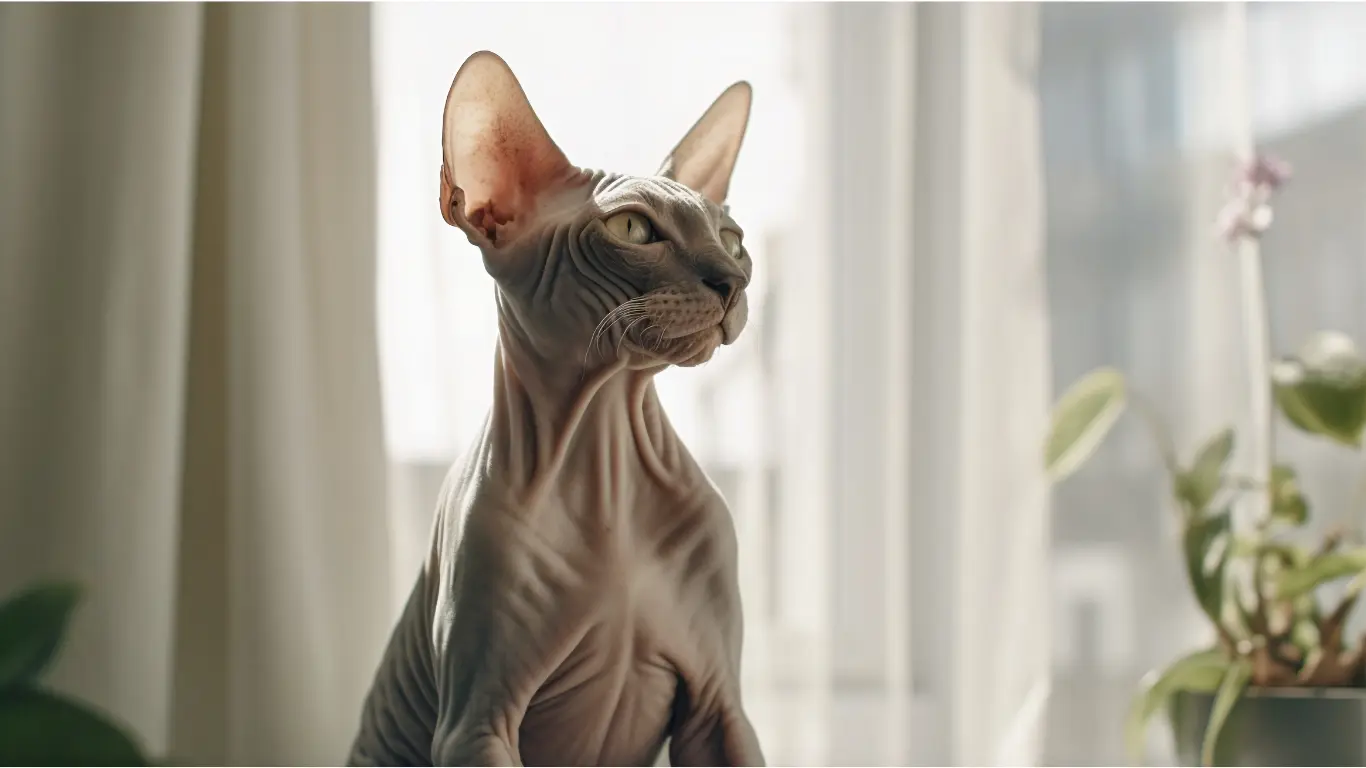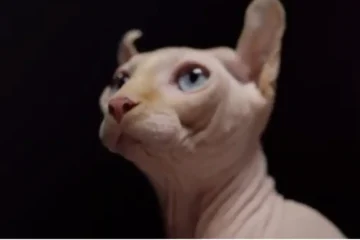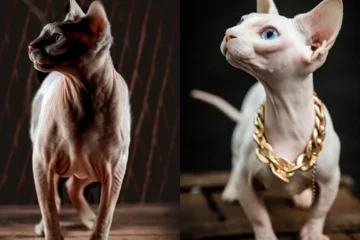The Sphynx cat is one of the most unique and easily recognizable cat breeds in the world. With its hairless appearance, large ears, and wrinkled skin, the Sphynx cat stands out from other breeds. But there’s so much more to this intriguing feline than just its looks. Let’s dive deep into what makes the Sphynx cat so special, covering everything from its origin to personality traits, and much more.
Origins of the Sphynx Cat
The Sphynx cat, despite its ancient-sounding name, is a relatively new breed. It was first discovered in the 1960s in Canada. A genetic mutation caused a kitten to be born without fur, and breeders took notice. They started breeding these hairless cats to preserve the genetic trait, which gave rise to the Sphynx breed we know today.
Though the breed may look unusual, the hairless gene is naturally occurring. Over time, breeders worked to strengthen the breed’s gene pool, leading to the Sphynx we see today. But what breed is a Sphynx cat really? It’s a unique breed, but it’s developed through careful breeding practices, mainly involving short-haired cats.
Appearance of a Sphynx Cat
When people ask, “What breed is a Sphynx cat?” they often focus on its appearance. The most noticeable feature of the Sphynx is, of course, its lack of fur. While these cats are often referred to as “hairless,” they do have a fine layer of fuzz on their skin that feels like suede.
Another defining feature is their wrinkled skin. The skin folds on a Sphynx cat are particularly pronounced around the head, neck, and shoulders. This adds to their unique and almost alien-like appearance.
Their large, bat-like ears and almond-shaped eyes also make them stand out. Despite their lack of fur, these cats come in a variety of skin colors and patterns, including solid, tabby, and tortoiseshell.
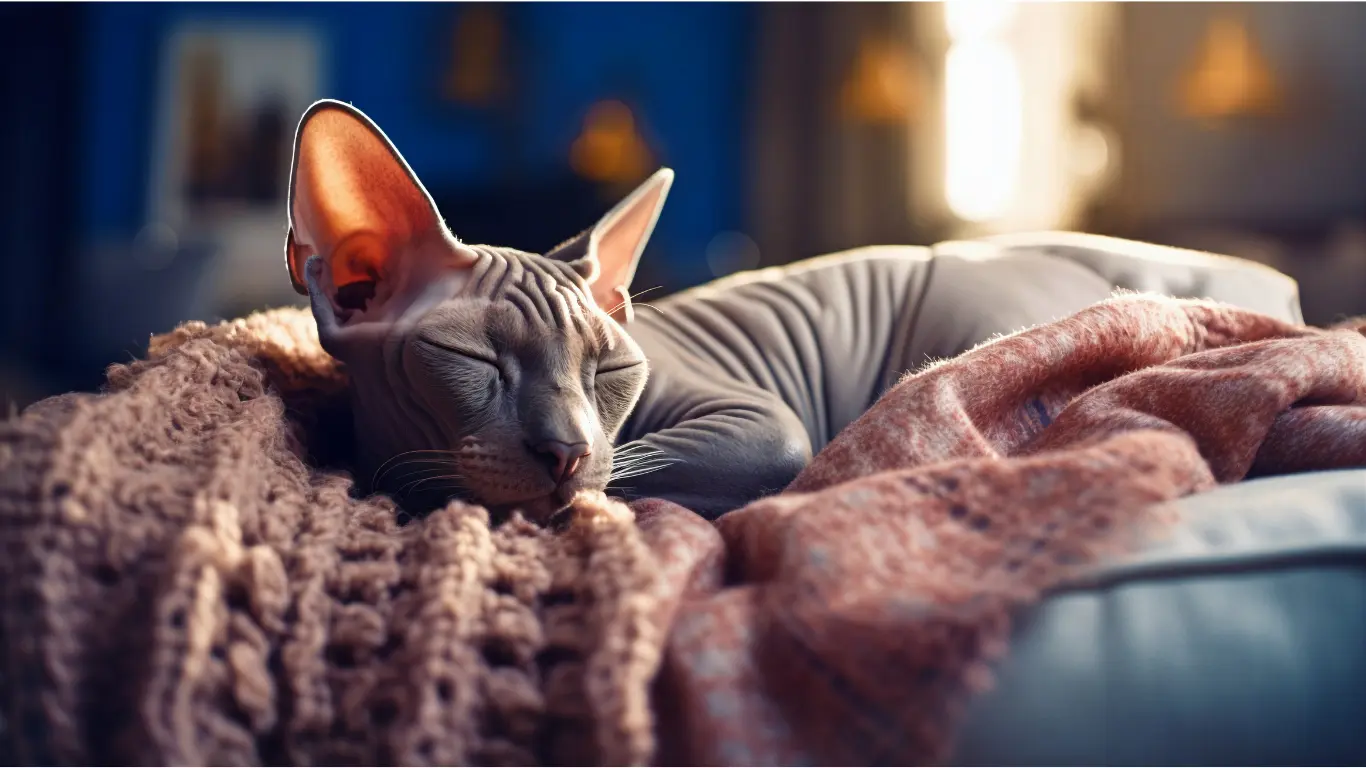
Personality Traits of the Sphynx Cat
So, what breed is a Sphynx cat in terms of personality? They are often described as outgoing, curious, and playful. Sphynx cats are known to be highly social and thrive on human interaction. They tend to be affectionate and enjoy being the center of attention.
Unlike some breeds that prefer independence, the Sphynx is a very people-oriented breed. They love to cuddle and will often seek out the warmest spot in the house, which is usually a lap or a bed. Their need for warmth is another reason they are so affectionate.
Because of their energetic nature, Sphynx cats are also playful. They love toys, puzzles, and interactive games. This makes them great companions for families or individuals looking for a fun-loving pet.
Health and Care for a Sphynx Cat
When considering what breed is a Sphynx cat, it’s important to understand their specific care needs. Because they lack fur, Sphynx cats need special care when it comes to skin health. Their skin produces oils, and since there’s no fur to absorb these oils, regular baths are necessary.
Weekly bathing is usually recommended to prevent the build-up of oils and dirt on the skin. In addition to bathing, owners should also clean the cat’s ears regularly. The large ears of a Sphynx can accumulate dirt and wax quickly, so cleaning them once a week is advisable.
Another important aspect of Sphynx care is maintaining their body temperature. Without fur, they can easily get cold. Many Sphynx cats appreciate warm blankets or heated beds, especially in cooler climates.
Nutrition for a Sphynx Cat
When thinking about what breed is a Sphynx cat, nutrition plays a key role in their health. Sphynx cats have a higher metabolism than many other breeds. This is partly because they use more energy to maintain their body temperature. As a result, they often require more food than other cats of a similar size.
Feeding a high-quality diet rich in protein is essential. Sphynx cats benefit from wet and dry food to keep them hydrated and maintain their energy levels. It’s also important to monitor their weight since obesity can lead to health issues, even in such an active breed.
Sphynx Cats and Allergies
People often ask, “What breed is a Sphynx cat when it comes to allergies?” While Sphynx cats are hairless, they are not hypoallergenic. Allergies to cats are typically caused by proteins found in the cat’s skin oils and saliva, not just their fur. Since Sphynx cats produce these proteins, they can still trigger allergic reactions in sensitive individuals.
However, some people with mild allergies find they can tolerate a Sphynx better than a furred cat, mainly because they shed less dander. Regular bathing and cleaning can also help reduce allergens.
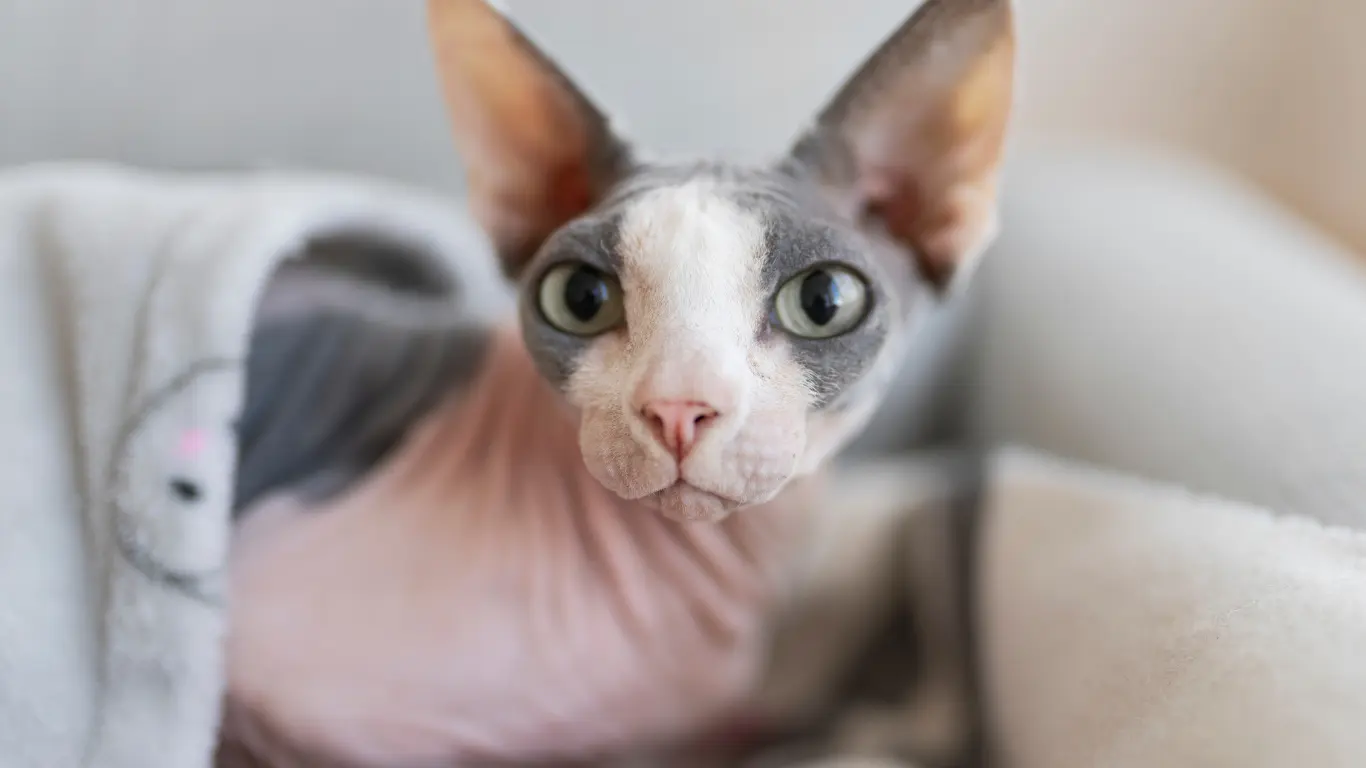
Do Sphynx Cats Get Cold?
A common concern about the breed is their sensitivity to temperature. Sphynx cats, being hairless, are indeed more susceptible to cold than their furred counterparts. It’s important to keep Sphynx Cat in a warm environment and provide cozy spaces where they can snuggle up.
Many Sphynx owners opt to dress their cats in light, soft clothing, especially during winter months. While this is not always necessary, it can help keep them comfortable in colder temperatures.
Socialization and Interaction
Sphynx cats are very social creatures. They don’t like to be left alone for long periods. If you’re considering adopting a Sphynx, it’s important to know that this breed thrives on interaction. If you work long hours or are often away from home, it might be a good idea to adopt a second cat to keep your Sphynx company.
Sphynx cats also tend to get along well with other pets. They are not usually territorial and are more likely to enjoy playing with other animals than engaging in aggressive behavior.
Lifespan and Common Health Issues
Sphynx cats have a lifespan of about 9 to 15 years, which is fairly standard for most cat breeds. However, they are prone to certain health conditions. One of the most common issues in Sphynx cats is hypertrophic cardiomyopathy (HCM), a heart condition. Regular veterinary check-ups are crucial to monitor for this condition.
Additionally, their lack of fur makes them more susceptible to sunburn. If you live in a sunny area, it’s important to protect your Sphynx from direct sunlight, especially if they enjoy sitting by the window.
Is a Sphynx Cat Right for You?
If you’re still asking, “What breed is a Sphynx cat, and is it the right breed for me?” it’s important to consider their unique needs. Sphynx cats require more grooming and care than many other breeds. However, their affectionate, playful, and loyal nature makes them wonderful companions for the right person or family.
Sphynx cats are ideal for those who have time to dedicate to their care and can offer them the attention they crave. If you’re looking for a loving, energetic, and unique pet, a Sphynx cat might be the perfect choice.
Frequently Asked Questions
Do Sphynx cats need special grooming?
Yes, Sphynx cats need regular baths due to their oily skin. Without fur to absorb the oils, their skin can become greasy. Bathing them once a week is usually recommended.
Are Sphynx cats hypoallergenic?
No, Sphynx cats are not hypoallergenic. While they shed less dander, they still produce the proteins that can trigger allergies in sensitive people.
Do Sphynx cats get cold easily?
Yes, due to their lack of fur, Sphynx cats can get cold easily. It’s important to keep them in a warm environment and provide cozy blankets or heated beds.
How long do Sphynx cats live?
Sphynx cats typically live between 9 to 15 years, though some may live longer with proper care and regular vet check-ups.
Conclusion
The Sphynx cat is a one-of-a-kind breed with its hairless appearance, affectionate nature, and special care needs. If you’re looking for a playful, loving, and unique feline companion, the Sphynx may be the perfect match. Just be prepared to invest time in grooming and keeping them warm, and you’ll have a devoted pet for years to come.

